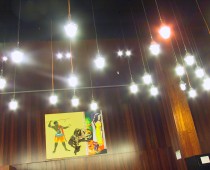Great book, about the hospitality business.
Part business, part hospitality.
Let’s start with his theory of people.
For example, his key theory of hiring and talent, his 51% framework is partly emotional skills but partly management/tech filters.
- Optimistic – nice people who are optimistic about other people, therefore friendly, kind, sincere
- <skip for now>
- <skip for now>
- Empathy – attuned to how others feel
- Self-awareness – attunement to how you feel and operate
- <skip>
The others are actually identical to Marc Andreessen’s simple system for hiring:
2. Curiosity (the underlying driver of “Intelligence not just smarts”)
3. Work ethic (or drive)
and
6. Integrity – because you want people to make the right judgments but also be a reliable partner in your shared problem solving
51% “good emotional skills” is the hiring framework – but here you see both drive, problem solving and a framework for niceness. 49% is technical skills (can they cook…).
Next, how to hire managers. He used to “model” good leadership but then he learned he had to teach it and set goals around it. What is it? He has a nine-point framework. Kind of too long. The heart of it is these people deliver Constant, Gentle Pressure. Which means they press forward for excellence, never a finished product, but do it in nice and human ways.
The nine points are stuff like: optimists, charitable not skeptical, generous not cost-cutting, approving patience, trusting (“uses trust” vs. “uses fear”) and self-confident (vs. paranoid). It’s not just pablum – other management gurus have starkly different approaches.
His model for leadership — the duties of leadership — is part “get ready to be watched; every move is amplified; you are never in private” but also “you have to learn how to use fire”. This latter thing is the “don’t expect to be everyone’s friend” lesson that folks eventually learn, or something I call…beastmode.
The heart of how to run teams, it seems, for him, comes from stating a set of values that make sense and guide the team. For him it was telling his people their priorities are “Each other, guests, the community, suppliers, investors”. This is interesting — in a service business the team comes first, then the guests.
Marketing and product development.
Meyer’s got the old school tinkering and observation style and has lots of nice anecdotes about “walk around”, “talk to people”, “listen carefully”, “encourage comments”, and act on everything visibly and fast. That last part is the marketing bit relevant for hospitality. Few people feel Apple listens to them personally and it doesn’t matter. Every diner expects to be listened to, and when the boss comes by it matters more.
Some casual bits and pieces of his theory of marketing
- restaurants need a “crowd”. Look for it and cultivate the “press watering hole” or “Wall St spot” thing early and aggressively.
- break the fourth wall with customers and get their co-creation and buy in. Walk up and tell them you don’t like the Onion Rings either and will remove them from the menu soon…then write a letter when you do.
- the solo diner – as important as anyone. They are lead-gen.
- the new customer – as important as the veteran repeat guest.
- standing for something – they banned smoking very early, for example.
Hospitality and the people strategy has a key ingredient here — “moths are attracted to the light and the heat”. The bulb should be functional (light — serving the food on time, being technically capable as a staff) but it should also be warm (the heat is what people feel, not what they see).
You can’t please everyone, or, Customer Service
Offense and Defense, or “athleticism” is his key metaphor here.
Offense — surprise and delight people with amazing experiences. Make that part of the core experience.
Defense — you need a toolkit for defense. They have free drinks, extra deserts, free checks, etc. This is interesting.
Surrender — never surrender, but you can accept that some customers will not ever be made to say they are happy. He has some good lines for this. “I am willing to do whatever it takes to make this right. Please give me the opportunity. However if you leave then please know that I was willing to do anything to make you happy.”
There are other good lines for defusing risk, understanding that greatness is mostly about hiding mistakes.
A great framework for apologies, since at the heart of people’s inevitable anger, you must apologize:
- Awareness. Notice what you did wrong.
- Acknowledgement. At least say you know something is wrong.
- Apology. But no excuses.
- Action. Here is what we are doing.
- Additional generosity — this is a good one. A treat or complimentary dinner check.
—
In our service business at Knotel, a few thoughts from all this.
- We need to adopt and train formally on these topics of service, not just the technical knowledge.
- We need an explicit Offense and Defense toolkit, including this nice Apology framework.
- The stuff about communities and lone diners is awesome. Reframes the way you value customers “by the numbers”.


You must be logged in to post a comment.